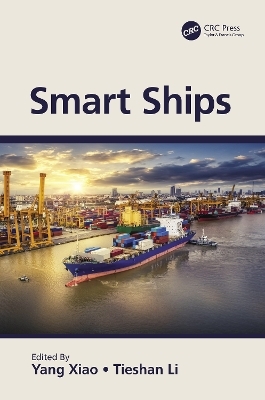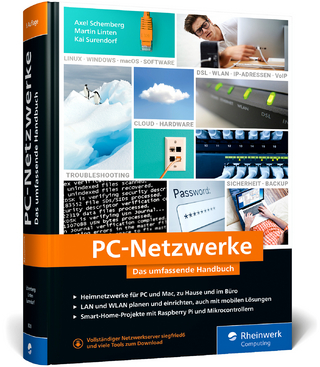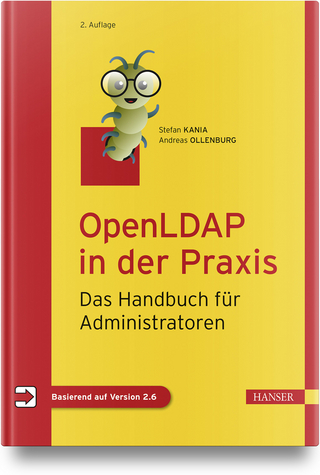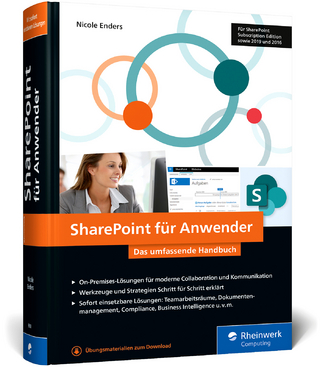
Smart Ships
CRC Press (Verlag)
978-0-367-45830-0 (ISBN)
Smart shipping is a future method for transporting ocean cargo and exploring the resources of oceans for medical drugs, food, energy resources, and other products. A smart ship is an integration of shipping with many fields such as fishing, manufacturing, navigation, communication, computing, control, sensing, etc., to provide better shipping and services.
The purpose of this edited book is to provide state‐of‐the‐art approaches and novel technologies for smart ships, covering a range of topics in these areas so that it will be an excellent reference book for the researchers, students, and professionals in these areas. It presents the fundamental technologies needed to build smart ships, and gives a clear explanation of them.
This book will serve as a good reference for researchers to know the state of the art and to discover uncovered territory and develop new applications, as well as being a guideline for building future smart ships.
Yang Xiao is a Full Professor in the Department of Computer Science at the University of Alabama, Tuscaloosa, Alabama, USA.
Tieshan Li is a Full Professor in the School of Automation Engineering, University of Electronic Science and Technology of China, Chengdu, China.
Yang Xiao received the B.S. and M.S. degrees in computational mathematics from Jilin University, Changchun, China, and the M.S. and Ph.D. degrees in computer science and engineering from Wright State University, Dayton, OH, USA. He is currently a Full Professor with the Department of Computer Science, University of Alabama, Tuscaloosa, AL, USA. His current research interests include cyber-physical systems, the Internet of Things, security, wireless networks, smart grid, and telemedicine. He has published over 290 SCI-indexed journal papers (including over 50 IEEE/ACM transactions papers) and over 250 EI indexed refereed conference papers and book chapters related to these research areas. He was a Voting Member of the IEEE 802.11Working Group from 2001 to 2004, involving the IEEE 802.11 (WIFI) standardization work. He is IEEE Fellow and an IET Fellow (previously IEE) (FIET). He currently serves as the Editor-in-Chief for Cyber-Physical Systems (Journal). He had (s) been an Editorial Board or Associate Editor for 20 international journals, including the IEEE TRANSACTIONS ON CYBERNETICS since 2020, IEEE TRANSACTIONS ON SYSTEMS, MAN, AND CYBERNETICS: SYSTEMS (2014-2015), IEEE TRANSACTIONS ON VEHICULAR TECHNOLOGY (2007-2009), and IEEE COMMUNICATIONS SURVEY AND TUTORIALS (2007-2014). He has served (s) as a Guest Editor for over 20 times for different international journals, including the IEEE NETWORK, IEEE WIRELESS COMMUNICATIONS, and ACM/Springer Mobile Networks and Applications (MONET). Tieshan Li received the B.S. degree in ocean fisheries engineering from Ocean University of China, Qingdao, China, in 1992, and the Ph.D. degree in vehicle operation engineering from Dalian Maritime University (DMU), Dalian, China, in 2005. He has been a Full Professor with the School of Automation Engineering, University of Electronic Science and Technology of China, Chengdu, China, since 2019. He was a Lecturer with DMU from 2005 to 2006, where he was an Associate Professor from 2006 to 2011, a Full Professor since 2011. From 2007 to 2010, he was a Postdoctoral Scholar with the School of Naval Architecture, Ocean and Civil Engineering, Shanghai Jiao Tong University, Shanghai, China. From 2008 to 2009, and from 2014 to 2015, he visited City University of Hong Kong, Hong Kong, as a Senior Research Associate. Since 2013, he has been visiting University of Macau, Macau, China, as a Visiting Scholar many times. His current research interests include intelligent learning and control for nonlinear systems, and multi-agent systems and their applications to marine vehicle control.
Part I Smart Ships in General
Chapter 1: Ship Architecture and Functionalities
Chapter 2: Ships in General
Part II Formation Control, Artificial Intelligence, and Simulation in Smart Ships
Chapter 3: Unmanned Ship Formation
Chapter 4: Artificial Intelligence (AI)-based Techniques for Smart-Ships
Chapter 5: An agent-based simulation model for energy saving in large passenger and cruise ships
Part III Safety and Security in Smart Ships
Chapter 6: Infectious Disease and Indoor Air Quality Management in a Cruise Ship Environment
Chapter 7: A Survey of Security and Privacy of Navigation, Localization, and Path Planning in Smart Ships
Part IV AUV and Communication Technologies in Smart Ships
Chapter 8: Smart AUV-Assisted Localization and Time Synchronization of Underwater Acoustic Devices
Chapter 9: Smart Spectrum Usage
| Erscheinungsdatum | 01.09.2022 |
|---|---|
| Zusatzinfo | 71 Line drawings, black and white; 28 Halftones, black and white; 99 Illustrations, black and white |
| Verlagsort | London |
| Sprache | englisch |
| Maße | 156 x 234 mm |
| Gewicht | 360 g |
| Themenwelt | Mathematik / Informatik ► Informatik ► Netzwerke |
| Mathematik / Informatik ► Informatik ► Software Entwicklung | |
| Mathematik / Informatik ► Informatik ► Theorie / Studium | |
| Technik ► Fahrzeugbau / Schiffbau | |
| Technik ► Umwelttechnik / Biotechnologie | |
| ISBN-10 | 0-367-45830-6 / 0367458306 |
| ISBN-13 | 978-0-367-45830-0 / 9780367458300 |
| Zustand | Neuware |
| Informationen gemäß Produktsicherheitsverordnung (GPSR) | |
| Haben Sie eine Frage zum Produkt? |
aus dem Bereich


